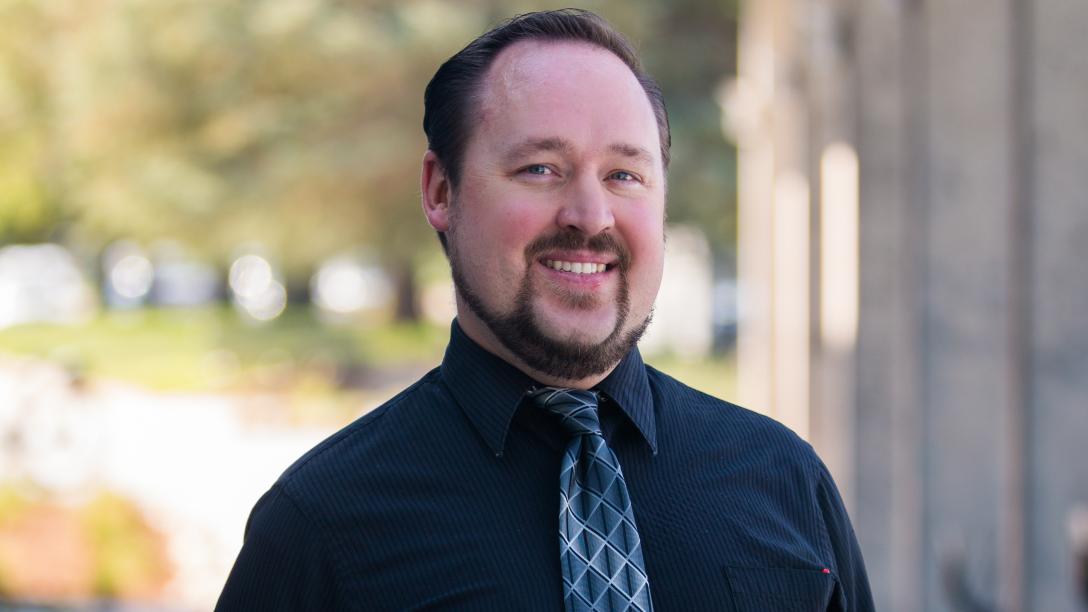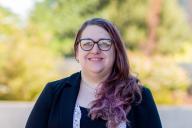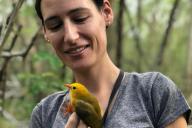Dan truly strives for his students to experience the “lightbulb moment.” He is encouraging, reflective, supportive, and always looking for ways to improve. He brings a positive attitude to any environment he is in.
Category
- Faculty Spotlights
Audience
- Faculty
Faculty Spotlight - Dan Van der Vieren

With resounding and unanimous opinion, Dan Van der Vieren’s colleagues agree he should be the first faculty spotlight of the school year! After reading and getting to know Dan more, it’s easy to know why his colleagues admire and respect him so much and realize we could do a year-long spotlight on him. Dan currently teaches Mathematics, Concurrent Enrollment for Frontier Academy, Briggsdale High School, Prairie High School, Pawnee High School, and Aims. His courses include:
- College Algebra
- College Trigonometry
- Intro to Statistics
- Math for the Liberal Arts
Dan truly strives for his students to experience the “lightbulb moment.” He is encouraging, reflective, supportive, and always looking for ways to improve. He brings a positive attitude to any environment he is in. Dan enjoys hiking, playing guitar, writing music, and solving puzzles outside the classroom, including the Rubik's Cube, helping his wife decorate cakes, playing LEGO with his kids, and snowshoeing in the wintertime. He just recently discovered woodburning and would like to do more projects with that art form. If you’re ever on the Greeley Campus and get a chance to come, say hi to Dan; you won’t be disappointed in the opportunity.
What teaching methods and practices have you found most effective and successful?
- Getting to know students' names as quickly as possible and calling them by name often.
- Tastefully incorporating humor to lighten the mood and break up the monotony of lectures.
- Sending emails using BCC (blind carbon copy) and using the salutation "Everyone," even if it is sent to one person, so that individual does not feel targeted.
- Having office hours "by appointment" and constantly offering to help, so students don't feel that there are only a limited number of opportunities to get help. We, as instructors, can still set boundaries with this practice.
- Being humble and asking colleagues for help when I don't know the best way to do something.
- Participating in as many professional development opportunities as is reasonable to stay current and engage with others. "Always learning" mentality!
- Giving students multiple chances to master the material so they can actually learn and not miss out on understanding concepts because of deadlines or single chances to demonstrate knowledge acquisition.
- Granting extensions for students (with goals to complete as soon as possible) so students don't feel left behind.
What are your 3 P’s: Something Personal, Professional, and Peculiar about yourself?
- Personal: I have a TEDx talk (presented in Boulder in 2018), a TED-Ed Riddle with 11.8 million views titled, "Can You Solve 'Einstein's Riddle?", and another TED-Ed short about "How the Konigsberg Problem Shaped Mathematics."
- Professional: I received the "2020 Innovative Teaching Award" as a part-time faculty member at Aims Community College.
- Peculiar: I can solve the Rubik's Cube in under 90 seconds (on a good day).
How did you come to be at Aims Community College?
My wife returned to finish her associate degree at Aims right as I began my master's program at the University of Northern Colorado. While at the school, she had the opportunity and pleasure to learn under Christine Wiedeman in the Early Childhood Education program. Christine, who was well-acquainted with another faculty member, Mike Miller of the Mathematics Department at Aims, introduced me to him. I became very excited when I was invited to shadow Mike's classes and see that his style and demeanor had some commonalities with my own. I was encouraged to reach out once I finished my degree to teach in a part-time capacity to get my foot in the door. The first semester was the semester COVID-19 hit, but the transition to remote learning didn't shut down my passion for teaching at the collegiate level but rather made it that much more strong.
What collaborations make you most proud?
I have been working with my colleagues in the Mathematics Department for the last couple of years and we have been able to "bounce ideas" off of one another. Additionally, I have been investigating a platform called IXL Learning, which helps students diagnose their math abilities and provides recommendations for them to address weak areas and reinforce strengths. I have collaborated with the Learning Commons tutors. I will hopefully use the platform this fall and into subsequent semesters to help students succeed in their math courses and ultimately increase the pass rate of the requisite college math courses!
What is your teaching philosophy?
The top priority for all teachers ought to be ensuring that their students receive a quality educational experience that facilitates academic success and assists them in completing their goals. By instilling a love of learning among their pupils within a safe and supportive environment, teachers can empower students to seek out their own path to contribute to society. Along the way, there may be a variety of hurdles and challenges for learners—particularly in the area of mathematics—but nonetheless, teachers must encourage students to persevere despite the struggle.
Teaching for me is both an art and a science, a vocation that requires a willingness to adapt to any situation. Specifically, teaching mathematics involves understanding the content thoroughly enough to know how to explain concepts in multiple ways. Contrary to the common belief that mathematics is “black-and-white,” I hold that although there may be only one answer, there are often several legitimate methods to arrive at a solution. Such critical thinking is a skill that I believe teachers must nurture to prepare students for today’s fastest-growing industries. This is also necessary because a classroom comprises many individuals with unique academic abilities and social skills. Working together in a community that cultivates curiosity allows students to fully engage in the content and persevere through learning difficult material.
While I teach, I find that I am “in my element” when I am engaging genuinely with my students and piquing their interest in mathematics. Through reflection on my lessons and even my student's performance, I seek out ways to develop my own practice so that I may better serve my students. I regularly critique myself by asking if there is a different approach that might resonate with students struggling to understand. This process has been integral in improving my teaching.

